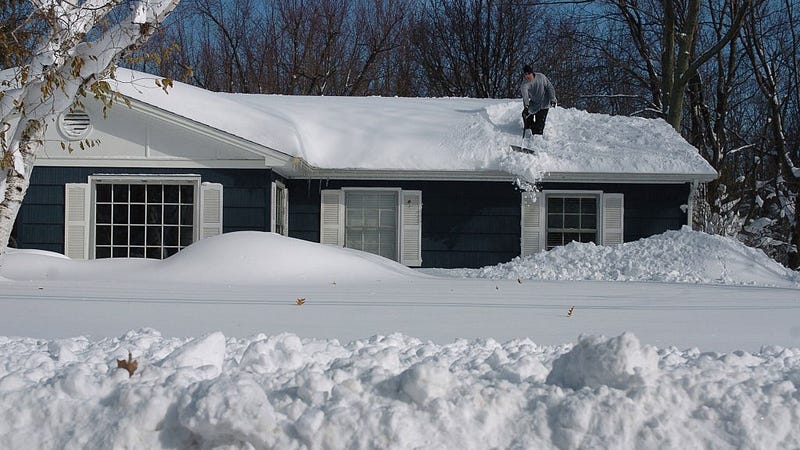
The second major snowstorm in five days is set to hit the East Coast on Thursday, and AccuWeather Senior Meteorologist Joe Lundberg said it could develop into the first bomb cyclone of 2022.
A bomb cyclone is said to occur when a storm's central pressure plummets 24 millibars within 24 hours. The mid-latitude cyclone rapidly intensifies, causing the atmospheric pressure to quickly drop and strengthening the storm. The lower the pressure, the more powerful the storm.
Lake-effect snow has already hit Buffalo, NY, accumulating almost 10 inches as of 10 a.m., according to AccuWeather.
"Heavy snow at the Buffalo airport this morning has already established a record for the date," the National Weather Service in Buffalo tweeted. "The 9.8" breaks the former record set back in 1974. If curious about the all-time January one-day snowfall total, that would be 18.3" set back January 11th 1982."
Parts of Connecticut, Maine, Massachusetts, and Rhode Island could see up to a foot of snow depending on how fast the storm strengthens. Boston is expected to get around 8 inches, according to AccuWeather.
"This will be a disruptive storm, and since cold air will be preceding the storm, snow will accumulate on roads as soon as it starts,” AccuWeather meteorologist Bernie Rayno said.
Snow is expected to hit parts of Maryland, North Carolina, Virginia and West Virginia on Thursday afternoon and evening. Washington, D.C. could see up to 6 inches on Thursday night into Friday morning.
A snowstorm on Monday in Virginia left more than 100,000 homes and businesses still without power as of Thursday, causing them to declare a state of emergency.
"These back-to-back storms will generate landmark winter weather that requires extra flexibility, particularly as many continue to deal with power outages," Gov. Ralph Northam said.
The South has already seen some snow hit Nashville, TN on Thursday morning.
"Snow has spread across much of Middle Tennessee including Nashville Metro, and travel is deteriorating quickly," the National Weather Service in Nashville tweeted. "1-2 inches per hour could fall at times this morning. Sleet and freezing rain transition near the Alabama line."


